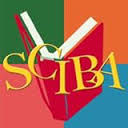We came, we read, we gushed.

Fragments of a Paradise by Jean Giono; translated by Paul Eprile (Archipelago). Reviewed by Mike Maggio. “Giono’s tale is ostensibly about a group of 20th-century sailors who embark on a journey of discovery in a 19th-century ship — an anachronism powered solely by the wind. The narrative is set in a post-World War I world, but the captain chooses this antiquated craft because he ‘doesn’t want to be dependent on coal yards, which would force [him] to set foot in civilized countries.’ In this way, Giono sets up his initial premise — nature as the overriding force to which humanity submits — and creates a construct in which humanity becomes the antagonist.”
Valley So Low: One Lawyer’s Fight For Justice in the Wake of America’s Great Coal Catastrophe by Jared Sullivan (Knopf). Reviewed by Larry Matthews. “The Kingston plant disaster was just one more outrage in what early European settlers believed was paradise: the Tennessee Valley, once teeming with wildlife, fish, and lush, beautiful hills at the base of the Great Smoky Mountains. Now, the water was black, the air was choked with toxic dust, and the TVA was trying to manage a public-relations nightmare.”
Four Points of the Compass: The Unexpected History of Direction by Jerry Brotton (Atlantic Monthly Press). Reviewed by Anne Cassidy. “North, south, east, and west don’t just help us navigate the world; they tell us who and where we are. The directions preceded the points of the compass; they gave humans the ability to locate themselves in space, to describe where the sun rises and where it sets. Some Indigenous peoples have such a keen sense of cardinal direction that they say, ‘Please move to the west’ instead of ‘Please move to the left.’”
Shy Creatures: A Novel by Clare Chambers (Mariner Books). Reviewed by Ellen Prentiss Campbell. “Both Chambers and Pym are close chroniclers of the domestic and professional world, as well as of the private yearnings of their characters. Both have been compared to Jane Austen (Pym deemed the accolade ‘blasphemous’). But the two are distinguished by different narrative choices, likely informed by sensibility and preference as much or more than writing 50 years apart. In life, in families, in literature, and among authors, there are generational, personal, and experiential differences. Customs and assumptions, frames of reference, and matters of style change over time.”
Carson the Magnificent by Bill Zehme with Mike Thomas (Simon & Schuster). Reviewed by Randy Cepuch. “Carson retired in 1992 and passed away in 2005, so why is this book appearing only now? It’s complicated. For many years, Carson resisted any such project. Zehme managed to get a rare interview in 2002 for Esquire and stayed in touch. He signed a book contract in 2005, after Carson’s death, then worked on it for nearly a decade, obsessed with collecting every bit of information and interviewing all possible sources. ‘What if I’m missing something?’ he worried.”
Time of the Child: A Novel by Niall Williams (Bloomsbury Publishing). Reviewed by Alexandra Grabbe. “In Faha, the holidays involve the fastidious preparation and bestowing of Christmas boxes lovingly organized by merchants for their faithful customers. On Christmas Eve — when ‘the day was dry and for a time the river wore the clear sky like a silk’ — during Midnight Mass in the ‘small and crowded’ church, the townspeople witness a most unusual event, one that helps us understand the novel’s title.”
Ingenious: A Biography of Benjamin Franklin, Scientist by Richard Munson (W.W. Norton & Company). Reviewed by Stephen Case. “While not the first to speculate that lightning was electric, ‘Franklin was the first to devise trials to prove the connection between lightning and electricity.’ This was, of course, the famous 1752 experiment in which, using a Leyden jar, a kite, ‘an old key, a silk thread, some sealing wax, and a sheet of paper, Franklin discovered the identity of lightning and electricity.’ Pieter van Musschenbroek, though himself a co-inventor of the Leyden jar, remarked of Franklin, ‘Nobody has discovered more recondite mysteries of electricity’”
Subscribe to our newsletter here, and follow us on Instagram, Bluesky, Facebook, Pinterest, and LinkedIn. Advertise with us here.

